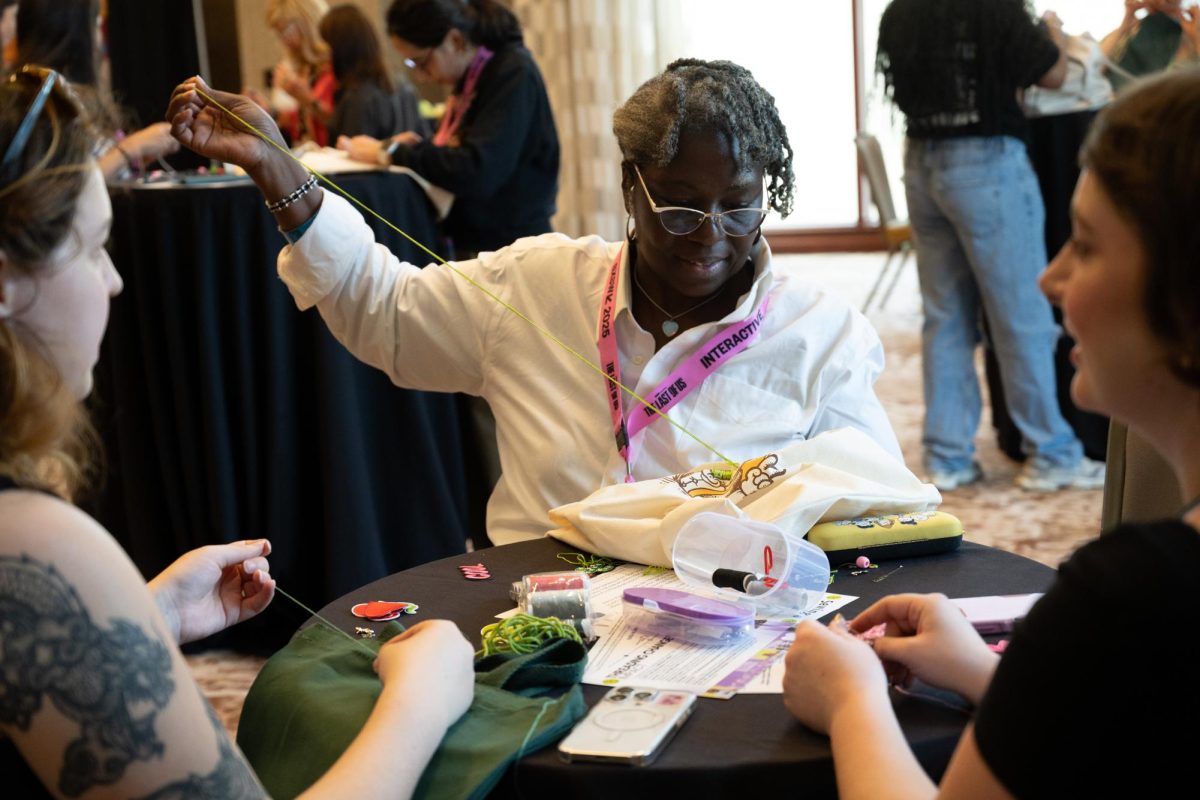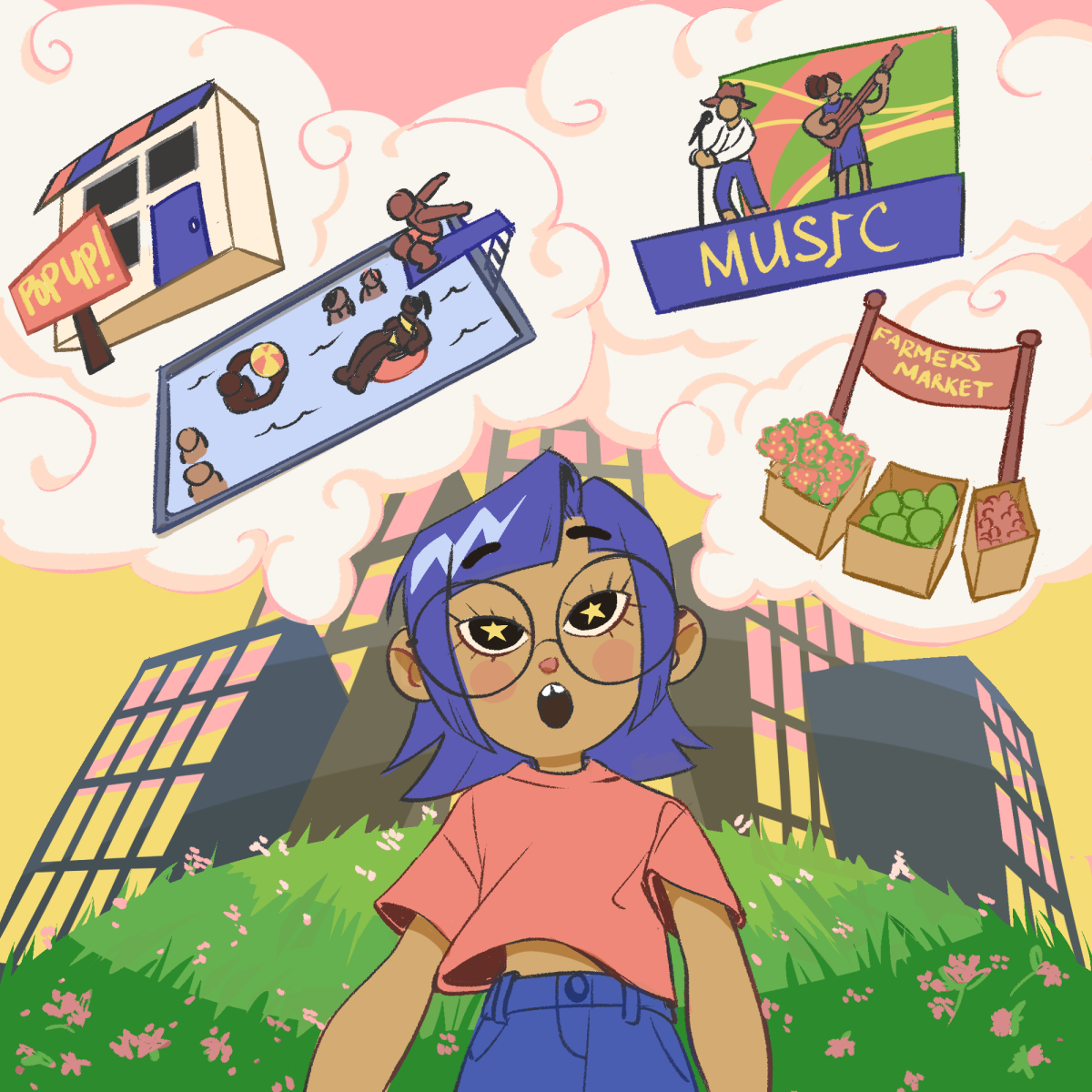On a busy Friday night at the McCullough Theater, ushers hand out programs as guests enter, but some seats stay empty by the time the doors are closed. The audience quiets as the curtains rise, revealing a disorganized apartment scene.
The Butler School of Music’s new interpretation of La Bohème, a tribute to former opera director Robert DeSimone with an orchestra conducted by Douglas Kinney Frost, presents a reimagining of Puccini’s classic opera as a relatable story of students struggling to survive in a city with massive costs of living. Rather than have the opera set in Paris, as in the original, the creators merge Paris and Austin into a fictional city called Parstin and present the main characters as graduate students sharing an apartment in the 2023-24 academic year. This makes the opera modern and relatable to an audience of university students, although the costumes and set decor continue to resemble a 19th-century French environment.
The main characters, roommates Rodolfo, Marcello, Colline and Schaunard struggle to pay their greedy, philandering landlord Benoit. One day, while poet Rodolfo and painter Marcello are lamenting the cold weather, Schaunard, the musician of the bunch, arrives unexpectedly with food, money and gifts he got from a wealthy patron, declaring that they will have dinner outside. Rodolfo elects to stay a little longer to finish an article, while the rest of his friends leave for Cafe Momus. His choice leads him to meet Mimì, an impoverished young woman suffering from an unnamed illness who seeks shelter at the apartment. They quickly fall in love, setting the rest of the story into motion.
The opera struggles to make Rodolfo and Mimì’s love story compelling as it attempts to modernize a traditional, century-old story. The intensity of the emotions felt by characters, when combined with the pace of the story, simply fails to be realistic. In the beginning, Mimì and Rodolfo flirt, and Mimì appears desperate, almost ridiculous, as she forces Rodolfo to help her find her keys (which she lost intentionally). They then become more traditional, star-crossed lovers. Then, Rodolfo becomes jealous of the attention Mimì receives from others, and the two break up. But they quickly reconcile in the tragic finale of the opera, before Mimì dies of her illness.
The setting does not help either as the play struggles with reconciling 19th-century source material with modernity, but it does make the characters and their conflicts more accessible and endearing to a modern audience. It also helps highlight issues that are still relevant to students today, like housing costs, healthcare access and the artistic struggle to produce creative and original work.
Overall, this production of La Bohème shows how 21st-century student lifestyles compare to a 19th-century bohemian one, and students interested in the performing arts should definitely watch it. Tickets are free for all UT students and provided at the door on a first-come, first-served basis, and there are two upcoming performances on Oct. 27 and 29.














